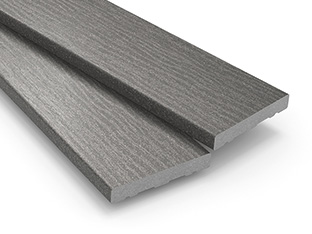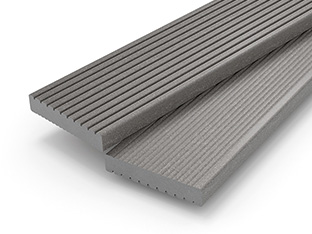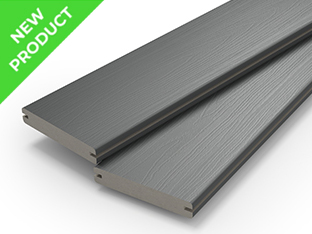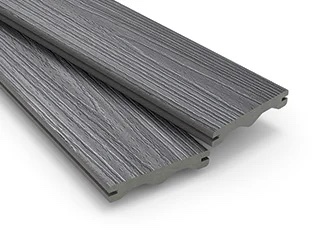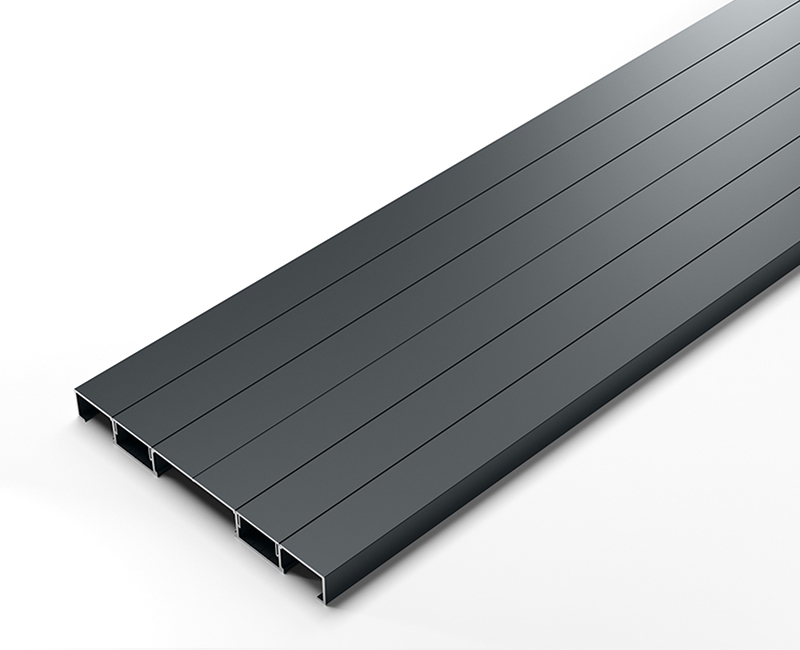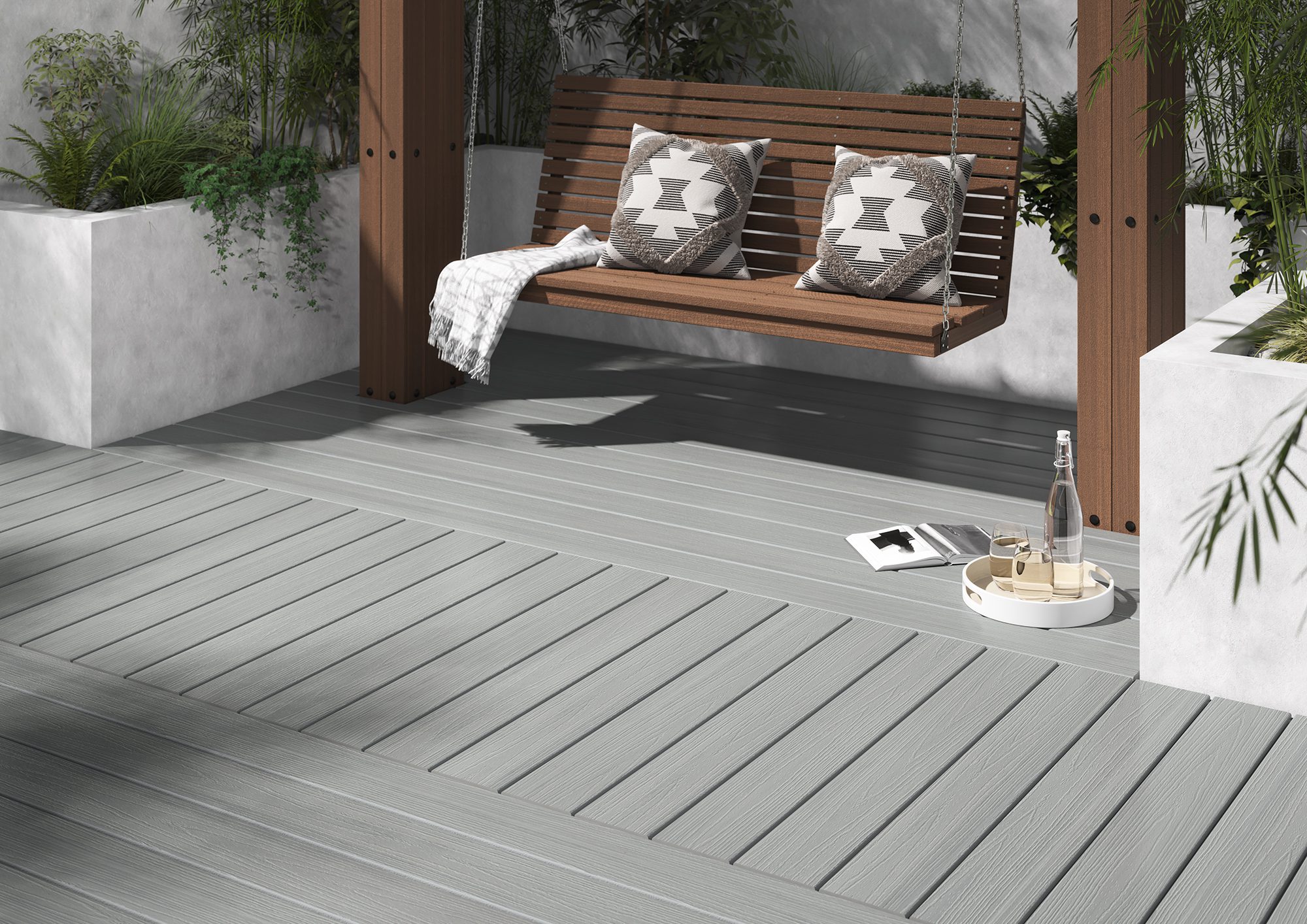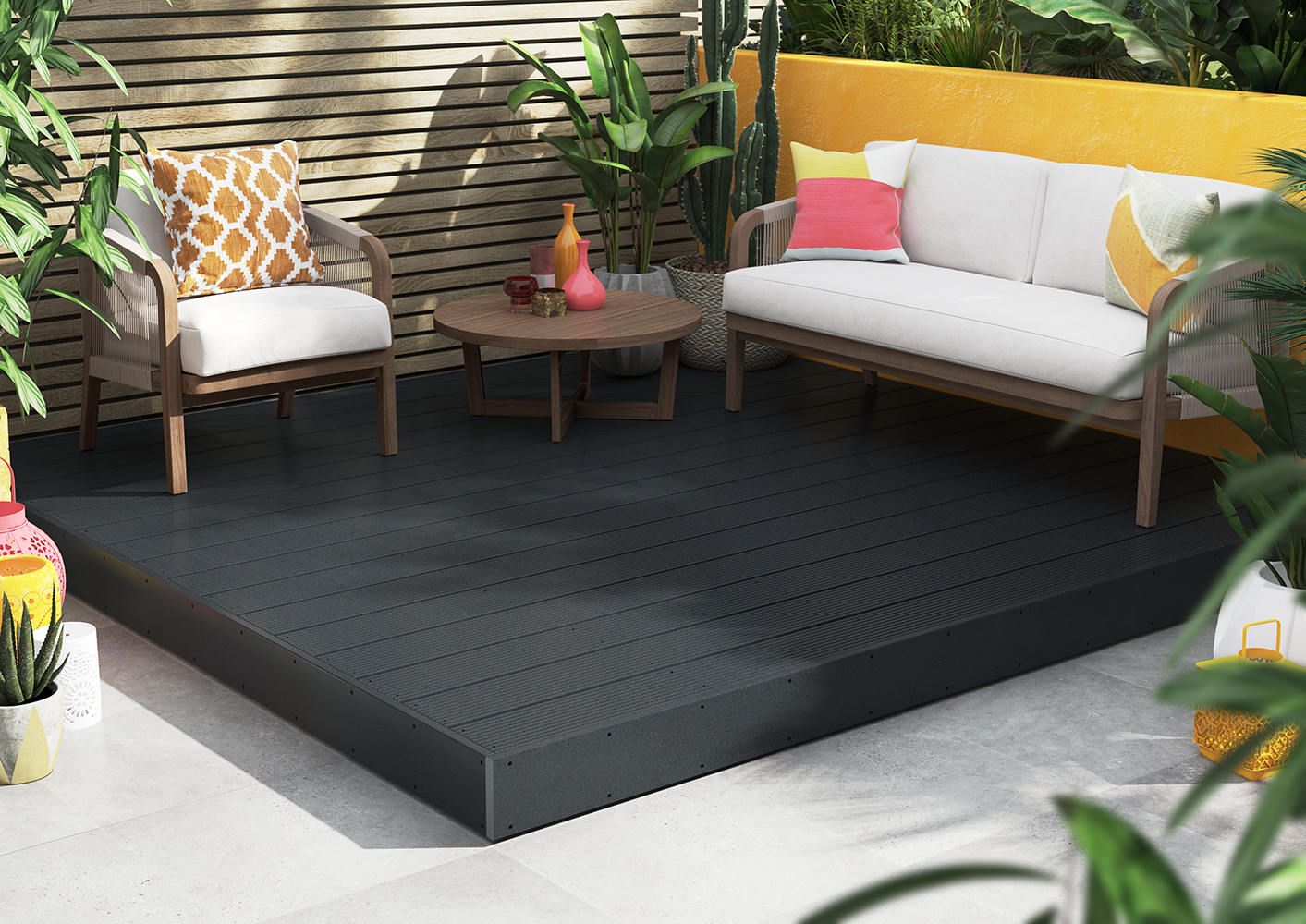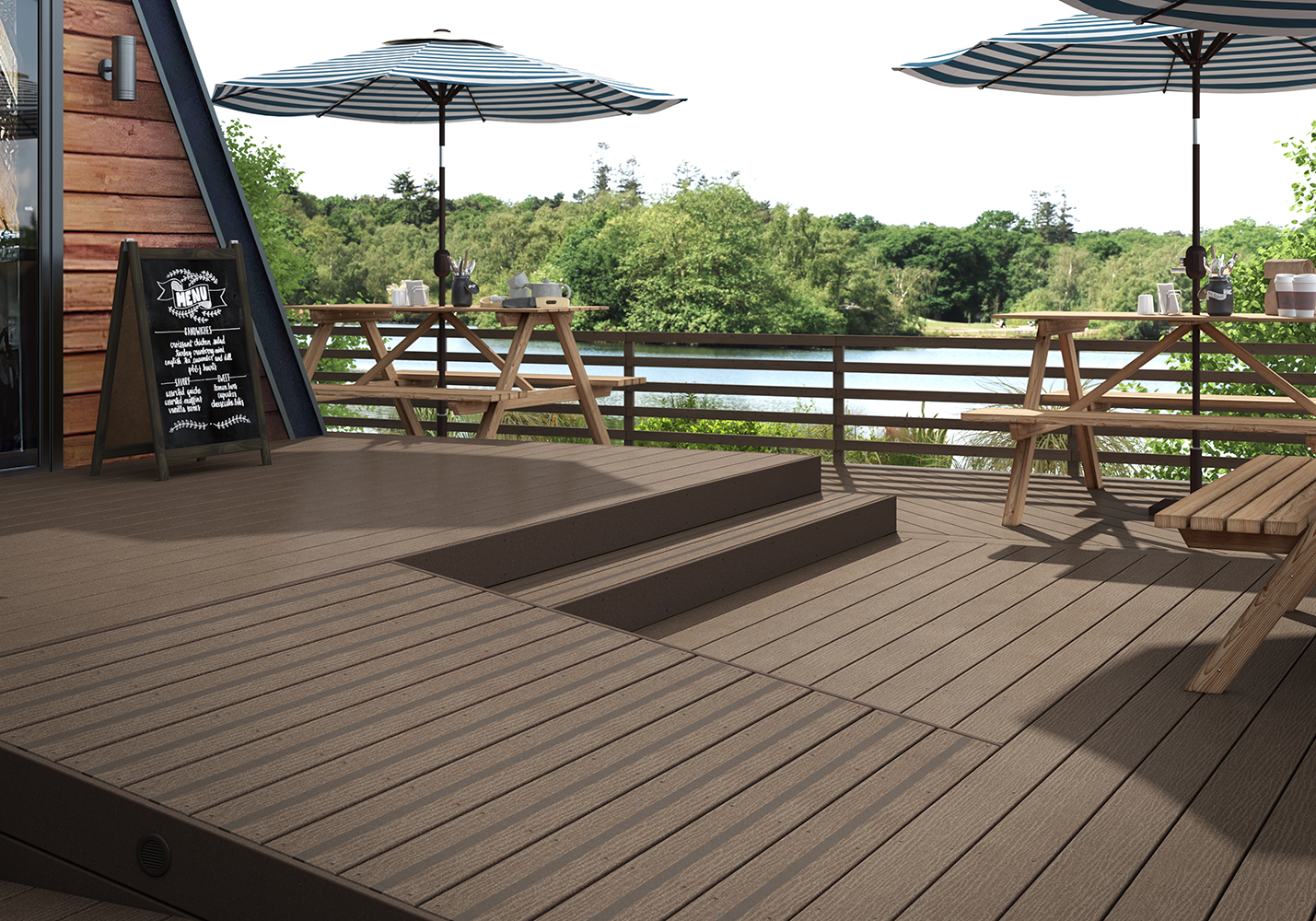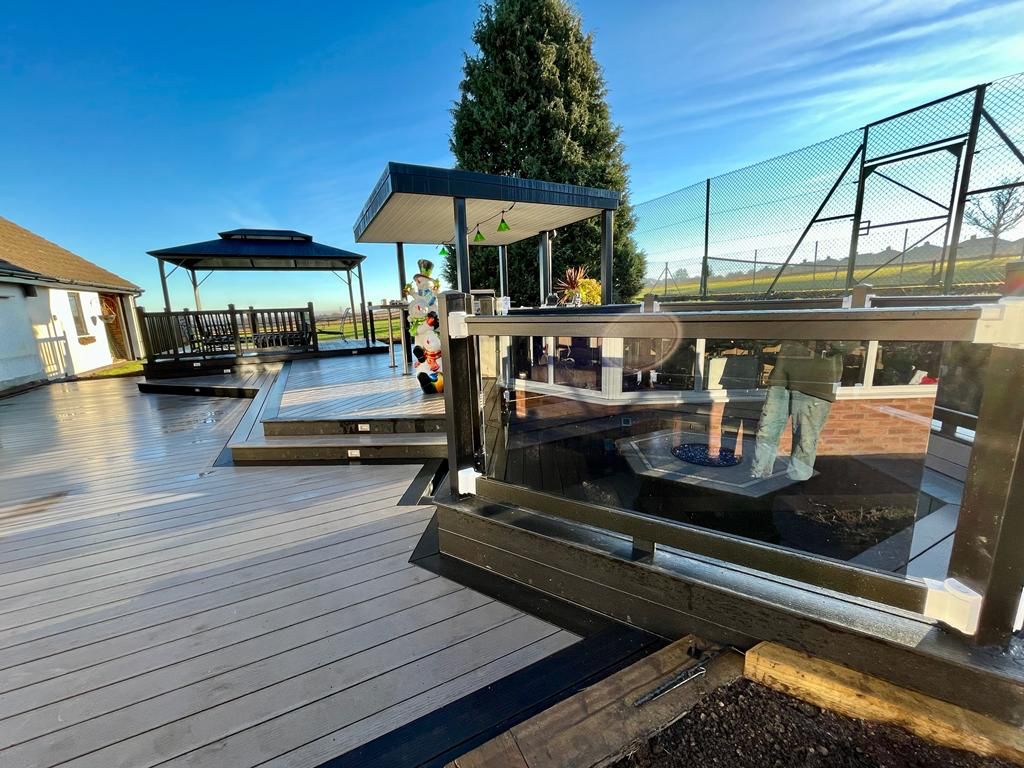Which Is Better, Hollow Or Solid Composite Decking?
Wood composite decking is no longer considered a sub-standard alternative to timber. The development of high quality, stylish and long-lasting wood polymer composite (WPC) decking means it is now a primary choice for many.
This increase in popularity has led to an influx of composite decking to the market – and while many look identical, the quality below the surface may differ dramatically and it’s important to know what you’re buying, as our Managing Director, William Hogg explains:
“There are two main composite decking construction types, solid and hollow, and whilst both have their merits it is important to be aware of what you’re purchasing and whether it’s the best choice for your needs.”
Solid, Safe & Sound
“The first option is solid composite decking. Due to their increased strength, solid boards are generally a higher quality than their hollow counter parts. This combination of quality and solidity also means these boards have a longer life span. This means they do not need to be replaced as often as hollow boards and usually carry longer warranties, providing you with the peace of mind that you’ve purchased a superior product.
“Another advantage of solid wood composite boards is sound absorption. The characteristics of the polymers and wood fibres assist in dampening sound levels when the boards are walked on. This is compared to hollow boards which contain voids, around which sound can resonate.
“In addition to their strength and sound reducing properties, solid boards also allow for a far more flexible approach to installation, as installers do not need to worry about screw placement. This can help aid the speed of installation considerably as well as improve the final aesthetic.”
An Economical Choice
Hollow boards are a cheaper alternative to solid wood composite deck boards mainly due to a reduction in materials being used. While this makes them lighter and easier to manoeuvre, it compromises their structural integrity and results in a reduction in strength.
“Although a less expensive option, hollow boards tend to be of a reduced quality than solid boards. Once installed they have an exposed edge which can gather water and debris so it is extremely important to keep this internal structure clear of rubbish as it can cause damage to the boards and reduce their lifespan – so if you’re looking to reduce your gardening maintenance jobs, this may not be the right choice for you!” continues William.
Hollow Or Solid - Choosing The Best Board For The Situation
“Both types of decking have their place. Hollow decking is less expensive, but it does have a shorter life expectancy, require more maintenance and can be noisy to walk on. Solid composite decking is more durable and long lasting, and particularly suited to areas that are used frequently and by many people – and although it is more expensive, it is an investment that will provide many years of repair free enjoyment.”

